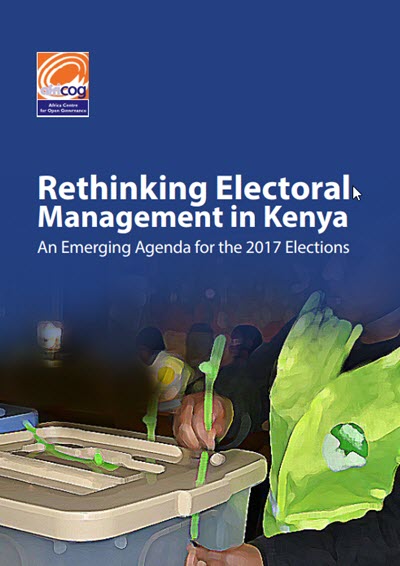The management of the 2013 general elections demonstrated serious gaps in transparency and accountability, exemplified by the IEBC’s inability to authoritatively state which voters’ register was used during the elections, and its failure to ensure the effectiveness of its Electronic Results Transmission system. The IEBC has been unable to demonstrate its independence as provided for in the Constitution2, giving rise to the perception of a Commission under the thumb of the executive arm of government.
The legal framework on elections management fails to integrate the participation of main stakeholders throughout the electoral process, thereby giving the Commission an opportunity to exercise administrative authority to block stakeholders from investigating and overseeing the electoral process.
Efficient, transparent and accountable management of electoral processes is key to promoting public confidence in elections and their outcomes. The Constitution of Kenya provides a general principles framework, and the statutory and administrative framework on elections integrates these principles.
Elections management is not static. Rather, it is an evolving process, one that must respond to the developing national context. It is therefore timely to reflect on experiences of past elections and identify solutions to those problems as Kenya heads into the next election period. Such proposals should aim to develop an agenda for reform that seeks to facilitate credible, free and fair elections that adhere strictly to the constitution and reflect the true will of the people. They should also facilitate the adoption of practices and measures that ensure the transparent administration of all aspects of the electoral cycle, including the full participation of electoral sector stakeholders throughout the cycle. The following analysis concludes with recommendations to contribute to this endeavour.
